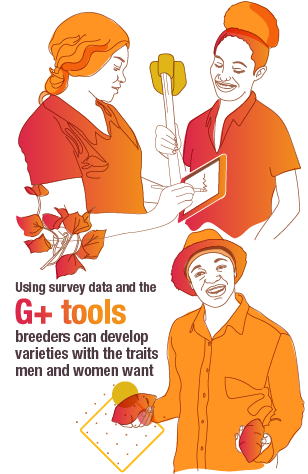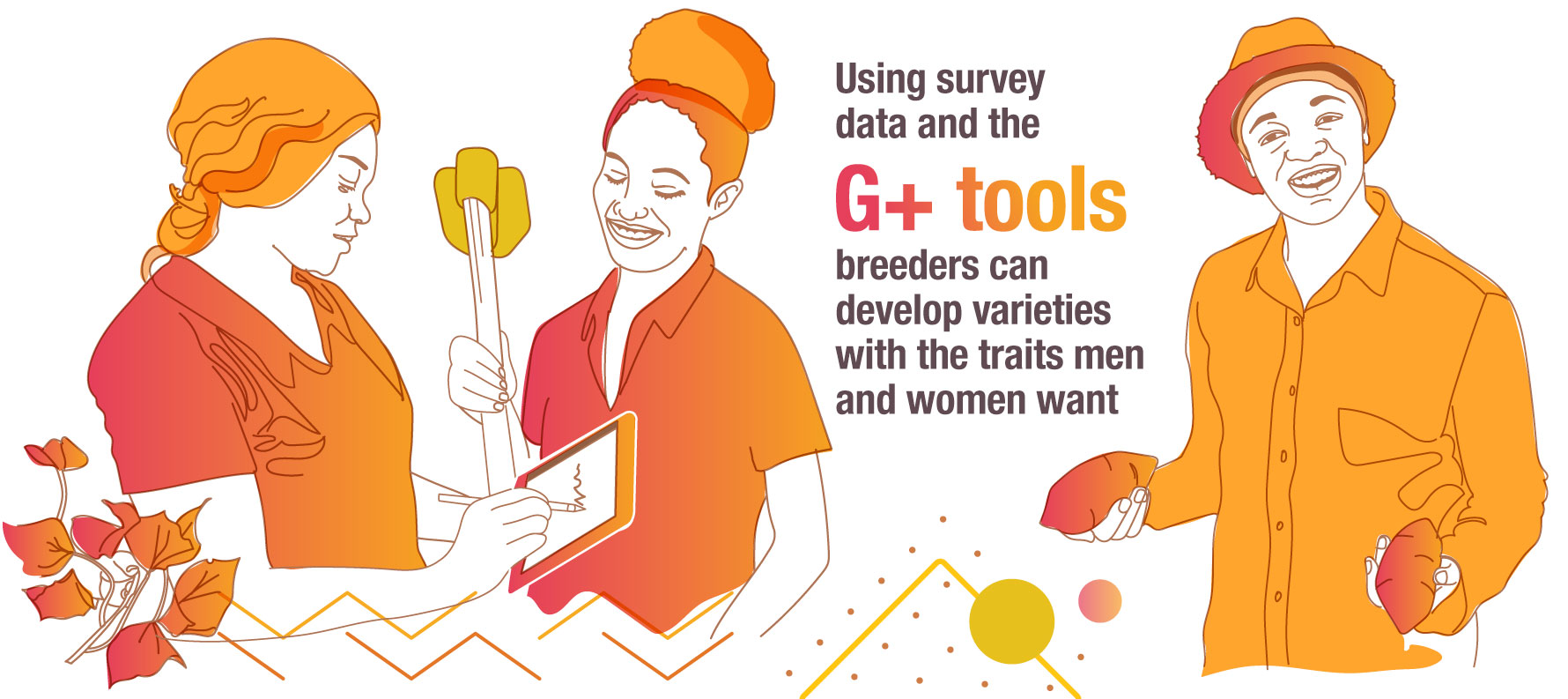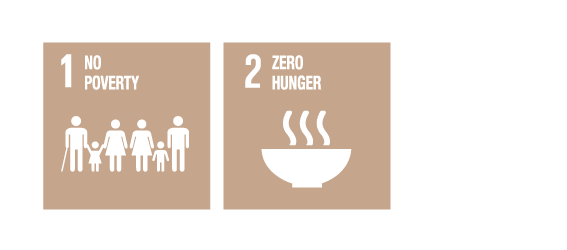Breeding better
Gender-responsive tools for ample adoption
In response to the challenges of climate change, growing demands for food, and persistent malnutrition, crop breeders across the Global South are developing more resilient, productive and nutritious potato varieties. But for those varieties to make a difference, they need to be widely adopted by small-scale farmers, which is often difficult. CGIAR scientists are rising to that task by using demand-driven breeding approaches, which helps them ensure new varieties have characteristics that draw upon a broad sample of consumers, farmers and food processors.
The G+ Tools – a new gender-responsive toolkit for breeding developed by the International Potato Center (CIP) and the CGIAR Research Program on Roots, Tubers and Bananas – promises to address this barrier by advancing a holistic framework to evaluate what traits men and women, farmers and consumers want in their potato, sweetpotato, cassava, and other crop varieties.
“Men and women often have different ideas about what matters most in a crop variety depending on their relationship to it. Men are likely to value it in terms of market-related traits like yield or shelf-life whereas women are likely to look for food security traits, such as early maturity, cooking time or taste,” says Vivian Polar, a Gender and Innovation Senior Specialist at CIP.
Polar explains that crop breeders have traditionally focused on yield, disease resistance, tolerance of environmental stressors and other agronomic traits, while also trying to satisfy some aspects of market demand. But the G+ Tools provide a broader vision of the characteristics that can determine whether or not a variety is likely to be grown or consumed.
Bridging the gender gap
Breeding new crop varieties can be a slow and arduous process, requiring many years of investment. In the past, some of this work has gone for naught as new varieties have failed to gain traction among their target clients: the farmers for whom they were bred. And more importantly, they have failed to deliver nutrition and food security to the families that needed it most. The G+ Tools enable scientists to address this barrier by assessing how a crop functions in the lives of women as farmers and traders, as heads of household, and as primary caregivers.

Incorporating women’s preferences into a new variety is a question of gender equity and economic necessity. And here’s why: Women make up 42% of the world’s agricultural work force. If women had the same access to productive resources as men, such as improved varieties, they could increase yields by 20-30%, which would generate up to a 4% increase in the total agricultural output of developing countries.
Putting the G+ tools to the test
The G+ Tools were designed to help plant breeders and social scientists work together to identify customers’ preferences for a new, or existing, variety and analyze how a variety’s different characteristics might benefit, or negatively impact, the women or men who grow or consume it.
“The data we collect have allowed us to understand how and if a new variety might require more labor on the farm, and how that might affect men and women differently,” says CIP research associate Sarah Mayanja, who piloted the tools at the East and Central Africa Sweetpotato Breeding Platform in Uganda.
By increasing the likelihood that varieties developed at the platform are adopted by farmers in Uganda and neighboring countries, the tools will contribute to a regional effort to use orange-fleshed sweetpotato to curb vitamin-A deficiency – a serious health risk for children and mothers.
Within the last year, the G+ Tools have been used by an array of partners in banana, cassava, potato, and sweetpotato breeding programs around the world to better define “product profiles” — the descriptions of desired varieties that guide breeding efforts.
In Nigeria, the adoption rate of new cassava varieties is limited. “Value chain analysis reveals that women carry out, by far, the largest part of all processing, so new varieties must be easy to process and have good food product quality, or women simply won’t adopt them,” explains Béla Teeken, a gender scientist at the International Institute of Tropical Agriculture. “We can now take this into account in targeted breeding approaches to increase uptake of improved varieties by women.”
By facilitating such improvements, the G+ Tools will boost the adoption and impact of crop varieties developed in the coming years and enhance the CGIAR’s renewed commitment to gender equity. By listening to a diversity of voices, CIP is doing its part to boost food and nutrition security in a climate changing world.


Funders: Bill & Melinda Gates Foundation; CGIAR Trust Fund donors.
Partners: Alliance of Bioversity International and CIAT; Department of Plant Breeding & Genetics, Jawaharlal Nehru Krishni Vishwa Vidyalaya, Jabalpur, India; Ethiopian Institute of Agricultural Research; International Center for Agricultural Research in the Dry Areas; Institut National de la Recherche Agronomique, Morocco; International Institute of Tropical Agriculture; National Agriculture Research Organisation, Uganda; National Root Crop Research Institute, Nigeria; Pan Africa Bean Research Alliance.
Associated CGIAR Research Programs or Platforms: Excellence in Breeding; Roots Tubers and Bananas.


